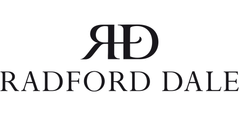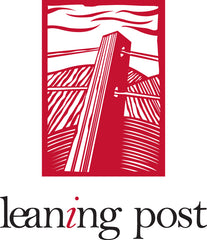275 products
- Red Wine
- Cinsault
- Natural, Organic, Vegan-Friendly
- Dry
- Full Bodied
- 750ml
- 13.5% alc./vol
About the Winery
Domaine Frédéric Brouca

Frédéric grew up in Normandy and met his Canadian wife Elaine at university in Lille, Northern France. They live a nomadic lifestyle (Canada, India, Singapore and USA) though Frédéric spends about half of his time in Faugères. Since early age, Frédéric had a calling for farming and the fierce desire to become a winegrower. After completing a Masters Degree in Finance in 2001, Frédéric went back to college for a Sommelier diploma and started his career as a Burgundy wine broker.
In late 2012, Frédéric and Elaine were fortunate to take over 25 acres of old vines in Faugères, organically farmed for twenty years and deeply rooted in schist soils.
2013 was the inaugural vintage for Domaine Frédéric Brouca. In his modest winery in the village of Laurens, Frédéric is creating a new vision for Faugères wines; fresh, vibrant and made without artifice. Nothing revolutionary, simply returning to our grandparent's ideology of farming and winemaking to craft 'Vins Vivants'. The Faugères Appellation is in the heart of Languedoc in the Hérault department. Here, winemaking dates back to the Greek times and was developed during the Roman Era. It wasn't until the early 1900's, however, that the wines became more widely known for its unique schist soils and moderate Mediterranean climate. These villages are heavily reliant on wine as an important part of their culture and economy.
The area is stunning with mountain views and close proximity to the Mediterranean Sea (20 miles / 30 kms). Faugères has a long history of responsible farming. It boasts the highest percentage of organic vineyards for any AOC in all of France with almost 50% of farmers making the choice.
Press Reviews
Wine Align
92 points (2021) - Michael Godel
Samsó Seulle is varietal cinsault from 40-plus year-old bush vines on the 'La Serre' hill in Faugères. At the higher end for whole cluster ferments in the Fréderic Brouca range, here at 70 percent. Samsó is the local name for the grape and Brouca goes gentle and slow in his trenchant intention on how to deal with extracting without shock and awe. The grapes and thus the wine come out soft and “glissement,” even while the swarthy volatility runs knowably high. Brettanomyces yeasts are simply, allegedly and unequivocally part of the fabric but because flavours and textures are so pretty there is no chance of brittle or crumbly tannins. And so the overall effect is good, generous and proper. At least once in your lifetime your vinous imperative is to try a wine like this, especially from Brouca. Drink 2024-2028. Tasted January 2023.
92 points (2021) - Sara d'Amato
Named "Samsó" the local name for cinsault (and phonetically very similar), Brouca's fruit is sourced from organically grown, old vine cinsault that is over 40 years of age. Often vinified with a good deal of whole-cluster giving the wine its necessary grip and then slowly matured in neutral vessels to preserve the varietal character. There is more wildness in this cuvée than many of Brouca's others, with a palate that is brimming with dried earth, wildflower, and fresh herbs, along with a touch of mushroom and musk. A notably pure expression of grape variety and features the concentration one might expect from a low-yielding drought vintage. Notes of cherry, fennel and licorice root permeate the finish of very good length. Best now to 2028. Tasted January 2024.
91 points (2021) - David Lawrason
This is an organically grown single vineyard cinsault, a variety making paler, red fruited wines. It has a distinctive, soft ripe nose of strawberry jam, very floral lilac/peony, a touch of char and earth. There is also some meatiness expressed more on the palate. It is medium bodied, supple, warm and generous with slightly gritty tannin. Excellent fruit concentration and length. Tasted January 2024
90 points (2021) - John Szabo
Pure old vine cinsault (aka samsó) from the south of France, organically farmed and handled minimally, Brouca latest 2021 is a typically wild and vibrant, crunchy and juicy red declared at just 12.5% alcohol, part philosophy, part cooler, wetter vintage no doubt, and all the more lively for it. The palate is notably gritty with light but angular tannins bouncing off tingly acids, containing a mouthful of tart red fruit, from red currant to sour cherry, free from oak influence, but featuring lots of wild savoury herbs and twiggy flavours. The finish lingers surprisingly for such a light wine. Chill lightly and serve over the next 2-4 years. Authentic and honest; I like the lift and transparency. Tasted January 2024.
- Red Wine
- Cabernet Franc, Carignan, Grenache, Merlot
- Natural, Vegan-Friendly
- Dry
- Medium Bodied
- 750ml
About the Winery
Celler Escoda-Sanahuja

Joan Ramón Escoda founded Celler Escoda Sanahuja in 1999 along with his wife Mari Carmen in Conca del Barbera, Catalonia. Since then, they have been disrupting the wine industry both in their home-country and internationally.
Celler Escoda Sanahuja was one of the first wineries that, back in 2005 stopped adding sulphites to their wines. Joan Ramon has always been a radical winemaker and a grass-roots innovator. His wild enthusiasm has been fuel for the natural winemaking scene, and has also led him to, spontaneously, create the 'Brutal' movement popular in natural wine circles. These are highly individual wines reflecting their origins and their innovative winemaker.
- Orange Wine
- Albariño
- Sustainable, Vegan-Friendly
- Dry
- 750ml
About the Winery
Peninsula Vinicultores

Península Vinicultores was founded by two Masters of Wine: Andreas Kubach MW, leads production and Sam Harrop MW directs viticulture. Andreas, raised in Brazil and Spain by German parents, and Sam, a native New Zealander, bring a new-wave, international perspective to the Spanish wine landscape. Andreas believes that in the past century, and notably post-industrialization, Spanish producers have prioritized wines of style, focusing on winemaking and aging, rather than wines of place. This creates what he calls a “ceiling of interest” for terroir. Inspired to change this narrative, he is focusing on small, old-vine plots all over Spain that were either formerly abandoned or are at risk of being ripped out for to plant more lucrative cash crops. The wines also champion local, indigenous varieties traditional to their respective regions and best express site.
- Red Wine
- Grenache, Syrah
- Sustainable, Vegan-Friendly
- Dry
- Residual Sugar: 3.00 g/l
- Medium Bodied
- 750ml
- 14.50% alc./vol
About the Winery
Domaine Andre Aubert
At the very heart of the Rhône Valley, at the northerly tip of the Southern Rhône, lie the vineyards of Grignan-Les-Adhémar. The chances are you haven’t heard the name before, few people have, but the wines are worth seeking out. It’s not a new wine region – vines have been planted here since around 500BC but it is a new name (formerly known as Côteaux-du-Tricastin). Domaine André Aubert, has been formed over decades and today comprises of more than 280 hectares spread from north to south of the prestigious Southern Rhone Valley on the appellations Côtes du Rhône, Côtes du Rhône villages, Visan, and Grignan-les-Adhémar.
Press Reviews
James Suckling
90 Points
A medium-bodied red with blackberries, currants, herbs and baking spices on the nose. Fine tannins with a juicy core of berries and peppercorns on the palate and a flavourful finish. Grenache, syrah and mourvedre. Drink now.
- Orange Wine
- Chenin Blanc, Macabeo
- Natural, Vegan-Friendly
- Dry
- Medium Bodied
- 750ml
- 12% alc./vol
About the Winery
Celler Escoda-Sanahuja

Joan Ramón Escoda founded Celler Escoda Sanahuja in 1999 along with his wife Mari Carmen in Conca del Barbera, Catalonia. Since then, they have been disrupting the wine industry both in their home-country and internationally.
Celler Escoda Sanahuja was one of the first wineries that, back in 2005 stopped adding sulphites to their wines. Joan Ramon has always been a radical winemaker and a grass-roots innovator. His wild enthusiasm has been fuel for the natural winemaking scene, and has also led him to, spontaneously, create the 'Brutal' movement popular in natural wine circles. These are highly individual wines reflecting their origins and their innovative winemaker.
- White Wine
- Chenin Blanc
- Sustainable, Vegan-Friendly
- Dry
- Residual Sugar: 2.00 g/l
- Medium Bodied
- 750ml
- 12.50% alc./vol
About the Winery
Radford Dale

Radford Dale and The Winery of Good Hope are two brands made by the same people, in the same winery. The team behind these wineries has been an industry leader since the 1990s in chemical free farming, and more recently in low and no sulfur winemaking. They are a founding member of PIWOSA (Premium Independent Wineries of South Africa) which sets ethical, environmental and social uplift standards. Recognizing the social inequality present in South Africa Radford Dale has also set up a trust called Land of Hope to help facilitate bright futures for children, focusing heavily on education.
Alex Dale who owns and manages both projects is an Englishman who grew up spending summers in Burgundy, France. He moved there in his late teens to follow a passion for winemaking and also opened a wine bar in Beaune. He lived in Burgundy for many years before moving to South Africa in 1998, starting Radford Dale with Ben Radford, an Australian. The idea was to produce wines using modern techniques and technology with a healthy respect for tradition, something Alex came to understand well while living in Burgundy.
Wines are made with minimal intervention in order to best express each vineyard’s individuality.
Press Reviews
Winemag.co.za
94 Points - Christian Eedes
Grapes from the same Lynedoch vineyard planted in 1969 that supplies Radford Dale's top-end Renaissance bottling. 40% matured in foudre, the rest in a combination of 228-, 300- and 500-litre barrels. Citrus, peach and just the right amount of leesy, waxy complexity on the nose. Great fruit concentration, punchy acidity and pithy, slightly bitter finish. Old-vine Chenin treated with the lightest of hands to great effect
- Sparkling Wine
- Sustainable, Vegan-Friendly
- Dry
- Medium Bodied
- 750ml
About the Winery
Leaning Post

A leaning post is what you find at the beginning of a row of grapes, anchoring the wires that are the frame-work for growing grapevines. It is the beginning of an obsession to translate a time and place into liquid. Leaning Post wines take you to that beginning by finding small, unique plots of land in Niagara and putting them in bottle. Because after stripping away all the fancy buildings and high-tech equipment you are left with a place on this earth that grows wine unlike any other. When you taste that in a glass you just know it. Nadia and Ilya have had to rely on the support of family, friends and financial institutions to make the dream of owning a winery a reality. Leaning Post began as a virtual winery and is so proud to now have the quaint tasting room at 1491 Hwy 8 on their home property in Winona, Ontario.
Ilya and Nadia are the brains and passion behind Leaning Post Wines. It started with a dream to take unique, interesting single vineyard blocks in Niagara and turn them into distinctive, terroir driven wines. Nadia and Ilya first met in their hometown of Winnipeg, MB where their passion for wine and each other was born.
Ilya has been a winemaker in the Niagara Region for the last 17 vintages working at Daniel Lenko Estate Winery, Foreign Affair and now at Leaning Post Wines. Ilya is also a consulting winemaker at the Good Earth Winery. Ilya’s true passion in life is to make world renowned wines from Niagara that really showcase the distinct terroir that Niagara offers.
- White Wine
- Chardonnay
- Sustainable, Vegan-Friendly
- Dry
- Medium Bodied
- 750ml
About the Winery
Domaine Baud Père et Fils

The history of Domaine Baud dates back to 1742, and it wasn't until 1950 when René Baud, the 7th generation, rebuilt the vineyard which had suffered from the phylloxera crisis and two World Wars.
Starting with only 4 hectares, the vineyard progressively expanded to 20 hectares with the help of successive generations. Now, managed by siblings Clémentine and Bastien, the 9th generation, the estate continues to flourish and grow, with a strong commitment to sustainable viticulture and preserving the traditions and style that makes the wines of the Jura so unique and incredible.
The estate achieved the Terra Vitis certification in 2014 for its eco-friendly work and environmental preservation.
- Orange Wine
- Chenin Blanc
- Natural, Vegan-Friendly
- Dry
- Medium Bodied
- 750ml
- 13% alc./vol
About the Winery
Celler Escoda-Sanahuja

Joan Ramón Escoda founded Celler Escoda Sanahuja in 1999 along with his wife Mari Carmen in Conca del Barbera, Catalonia. Since then, they have been disrupting the wine industry both in their home-country and internationally.
Celler Escoda Sanahuja was one of the first wineries that, back in 2005 stopped adding sulphites to their wines. Joan Ramon has always been a radical winemaker and a grass-roots innovator. His wild enthusiasm has been fuel for the natural winemaking scene, and has also led him to, spontaneously, create the 'Brutal' movement popular in natural wine circles. These are highly individual wines reflecting their origins and their innovative winemaker.
- Rosé Wine
- Gamay
- Sustainable, Vegan-Friendly
- Dry
- Medium Bodied
- 750ml
- 13% alc./vol
About the Winery
The Farm

“The Farm” is a 10-acre vineyard in Niagara’s Twenty Mile Bench, planted to Pinot Noir. The Neudorf vineyard was originally planted with Pinot Noir in 2000 for Le Clos Jordanne and aptly named “La Petite Colline”, meaning “little hill”, a nod to the gentle slopes that permeate the plot.
The property is rooted in traditions of gathering family & friends, and where Peter and Dora Neudorf call home. The cellar door opens once a year for guests to taste new releases, and enjoy live music and local food.





























